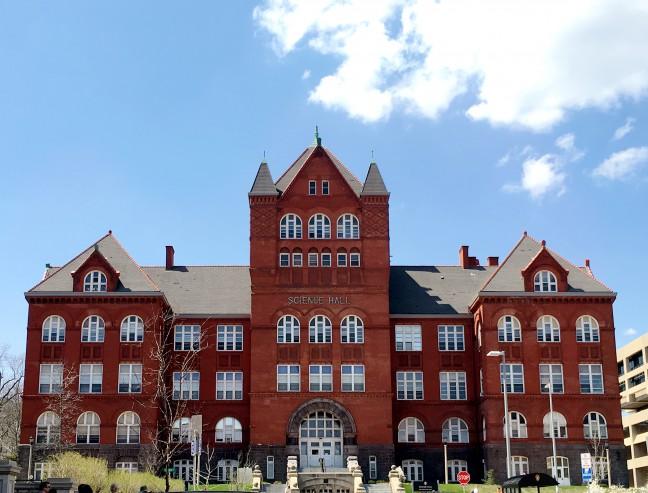University of Wisconsin professor Jonathan Patz was recently elected a member of the National Academy of Medicine for his pioneering efforts in the field of climate change as a health issue.
Patz said he was thrilled to be elected and it validates the topic he spent his career on, which is the health effects of climate change.
“For so long I’ve been heralding climate change as a human health issue, not just an environmental issue so to be recognized by the National Academy was really, really nice,” Patz said.
Patz is considered a pioneer in the field of climate change as a human health issue. He first began his research in the early 1990s. When he started, the topic of the effects of climate change on human and global health was very novel as very few people were doing research on this particular topic, he said. He saw that so many diseases are sensitive to the weather, especially mosquito-borne diseases and water-borne diseases.
Patz said if the climate is changing, then the risks of those diseases will also be changing. He views climate change as one of the largest environmental public health risks the human population faces.
UW professor says variables define social impact of carbon, shape policy
Patz’s research has now shifted from looking at the risks of climate change to looking at quantifying the health benefits from attacking the problem. He said as people get to a low-carbon economy, whether it be from clean energy and transportation or sustainable food, there are immediate health benefits.
“In reducing the threat of climate change, we have these co-benefits to health — from cleaner air, cities designed for people, not just for cars, people getting more exercise and also more vegetable-based diets — that are easier on the environment and on our cardiovascular system,” Patz said.
Patz came to UW 15 years ago as a cluster hire. He is currently the John P. Holton Chair of Health and the Environment in the Nelson Institute for Environmental Studies and the Department of Population Health Sciences. He became the first and still is the director of the UW Global Health Institute since 2011.
The National Academy of Medicine is a part of the National Academies of Sciences, Engineering and Medicine. When there is an unresolved scientific issue, the National Academy of Medicine puts together an expert panel and writes a consequent report. Patz participated in some of these reports even without being a member in the academy. Patz said now that he is a member, he could be given the opportunity to chair a report pertaining to his field of expertise.
Wisconsin Sea Grant collaborates with Chazen Art Museum to raise awareness of plastic pollution
Patz has participated at the national and international level in developments pertaining to the field of climate change. When Congress asked for a national assessment of climate change, Patz co-chaired the first health expert report as he was one of the few people well-versed in this research. Patz was also on the health chapter of the United Nations Intergovernmental Panel on Climate Change, and served as the lead author for 14 years. He was a part of several iterations of the IPCC reports.
Patz and his team have made many discoveries, such as the impact of climate change on increased risk for asthma, the relationship between heat wave mortality and latitude, identifying populations most vulnerable to heat-related morbidity and the association of Hantavirus outbreaks with El Niño in the southwestern U.S.
UW professor Daniel Vimont worked with Patz on understanding the impacts of climate change on human health in Wisconsin and the role of climate variations on the prevalence of Zika and dengue in South America.
“The National Academy is one of the top honors that can be awarded to a scientist in the United States,” Vimont said. “You are among the elite scientists in the history of our country if you are elected to one of the national academies.”
Vimont said it is a “very big deal” and well-deserved by Patz.





















